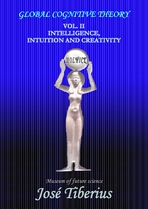2. Definition of intelligence
Colloquial language has many connotations, and some of the meanings are opposite of what one would expect.
The doctrine is divided and influenced for the social acceptance of its proposals. An author who is suggesting everyone has a very similar endowment and can become very intelligent would have a lot more possibilities for publicity and promotion.
Another promising and complementary path is minimizing the importance of the classic concept or definition of intelligence and associating the marvelous word to other aspects of life, such as social or emotional success. Sometimes, the lottery could be considered a representation of the winner's financial intelligence or that having lots of friends could represent emotional intelligence.
These tendencies, even the most serious and scientific ones, such as the theory of multiple intelligences, suffer from an additional problem, reaching the public with distorted content due to their accelerated acceptance.
In short, false humbleness is not humbleness but rather falseness, which of course does not help scientific development at all, especially in the planning of an educative system. The supposed quasi-equality of the genetic endowment of intelligence could impede the comprehension of complex social phenomenon.

From the Vox General Dictionary of the Spanish Language:
The ability to understand, a greater or lesser capacity to know or learn
A group of all the functions whose objective is knowledge (sensation, association, memory, imagination, understanding, reason, conscience)
Both are excellent and acceptable definitions in the sphere of language, but somewhat imprecise technically. In the first definition of intelligence, some aspects do not have much to do with it, such as memory in its distinct dimension of the memory manager. The second one is excessively generic.
The reflections made about the multifunctional and multifaceted nature of intelligence and the conditions or requirements associated with the desired responses and its hereditary nature, allow to propose a conceptual approximation and propose a new definition.
2.a) Relational intelligence
This name is an attempt to gather what we have expressed on various occasions, that we understand intelligence as a capacity for making abstract relations. Therefore, it will be the group of abstract and elemental functions allowing for any complex relational operation.
So, we can cite the following relations as known examples: above / below, large / small, general / specific, deep / high-pitched, smooth / rough, dark / light, mate / shiny, in front / behind, kind / rude, sour / mild, direct / refined, sweet / bitter, intense / light, good / bad, etc.
These conceptual relations are not as elemental as they seem. For example, all appear binary, but this is not a necessary condition to be a primary relationship. In addition, they could be in an increasing linear order; some could be better in two dimensions. In any case, they serve to express what we are trying to say.
2.b) Conditional intelligence
As we have seen, the cognitive functions work depending on the demanded requirements regarding response reliability. Surely, we could specify another type of operating conditions for intelligence, and we would obtain other categorizations.
These demands define conditional intelligence, indicating that the same group of functions of relational intelligence can imply a different conditional intelligence.
The concept is remarkable given that, on the one hand, it provides an instrument for identifying some instances of particular significance; on the other hand, it reminds that elemental functions are the same when the only variation of the specific case refers to the operative conditions.
